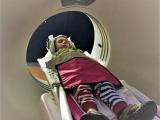The US Centers for Disease Control and Prevention (CDC) said today that it continues to receive reports of acute flaccid myelitis (AFM) cases, and because extensive testing since 2014 still hasn't identified a cause, it is modifying its testing protocols.
After an initial surge in cases in 2014, the CDC has been probing another big rise in cases in 2016, in which 136 cases were reported in 37 states. For 2017 so far, the CDC has received information for just 1 confirmed case, according to a clinical action notice sent to health providers yesterday.
The 2014 outbreak of AFM, marked by a sudden onset of limb weakness associated with spinal cord inflammation, coincided with a national outbreak of severe respiratory illness caused by enterovirus D68 (EV-D68), but testing has never consistently identified a specific pathogen in spinal fluid samples. The CDC has said several other viruses can cause AFM symptoms, including poliovirus and adenovirus.
Modified testing protocol
Given that the CDC and others have not identified a specific cause, the agency said it will no longer perform clinical testing for enteroviruses or do gene sequencing on specimens collected from suspected AFM cases.
Instead, the CDC said it has expanded the search for potential causes of AFM by broadening lab approaches that test for possible infectious and noninfectious causes, including possibly immune-mediated mechanisms.
In its updated testing recommendations, the CDC urged clinicians to collect specimens from patients with suspected AFM as early as possible in the illness course, ideally on the day of limb weakness onset. "Early specimen collection has the best chance to yield a diagnosis of AFM," it said.
Pathogen-specific testing should continue at hospital or state public health labs, to include cerebrospinal fluid, sera or whole blood, stool, and respiratory samples. The CDC added, however, that it will now prioritize testing of sterile-site specimens, such as CSF of blood, using protocols to optimize the identification of a cause or possible mechanism.
Though nonsterile specimens, including respiratory ones, will not be routinely tested at the CDC, clinicians should still send the CDC stool or fecal specimens to rule out poliovirus. It added that samples that test positive for enteroviruses or rhinoviruses at external labs can still be sent to the CDC for typing.
See also:
CDC AFM specimen collection and submission page
CDC information about AFM in the United States
Nov 2, 2016, CIDRAP News story "CDC probes rise in AFM cases as Washington reports cluster"























